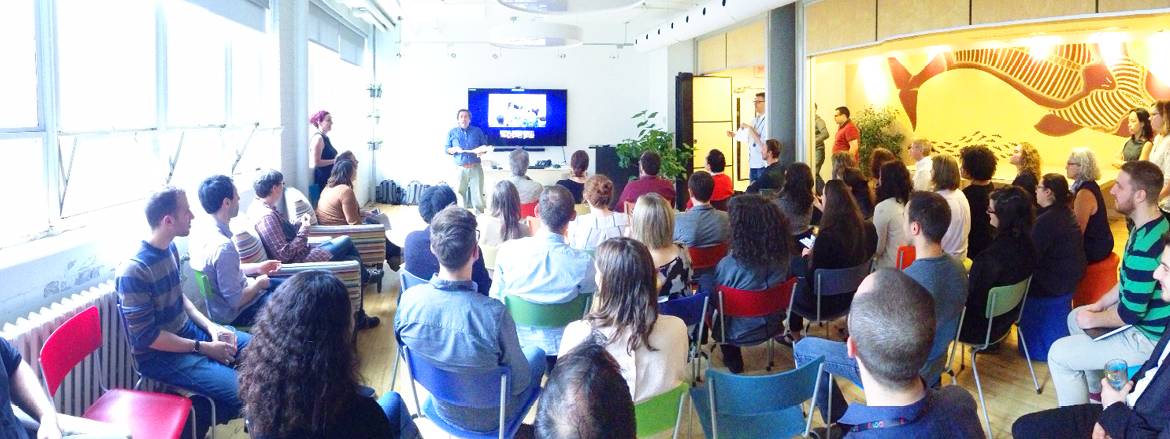Sustainable Development
EVOQ’s Sustainable Development Charter was created to outline our goals and long-term commitment towards sustainable development. The Charter formalizes EVOQ’s intention to integrate sustainability principles within its architectural practice in order to mitigate the environmental, social and economic impact of its services.
The Charter also declares the overall themes which will serve as catalysts to guide our core actions through EVOQ’S Sustainability Plan. Driven by EVOQ’s Board of Directors as well as by its Sustainability Committee, this Charter is an affirmation of EVOQ’s concerted and ongoing sustainable development plans.
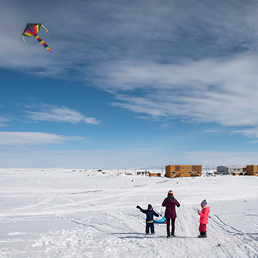
EVOQ’S MISSION AND VISION
To create a lasting architectural legacy that links the past, the present and the future with creativity and nuance
To shape our environment by balancing technical efficiency, creative excellence and eco-responsibility.
EVOQ is proud to be the first architectural firm to achieve ECORESPONSIBLE™ LEVEL 2 Certification from the Conseil des industries durables for its Montreal, Ottawa and Toronto offices. This certification, awarded by ECOCERT *, recognizes EVOQ’s concrete contribution to sustainable development and its eco-responsible practices.

AT EVOQ,
WE BELIEVE IN
- INTEGRITY
Adhering to the highest standards of professionalism and advocacy
- QUALITY WORK
Delivering personalized holistic solutions
- STRONG PARTNERSHIPS
Encouraging collaboration with our clients, colleagues and the public
- FINANCIAL PRUDENCE
Exercising good judgement based on measured risks
- SOCIAL ENGAGEMENT
Sharing knowledge in the community
- QUALITY WORK LIFE
Promoting a work / life balance
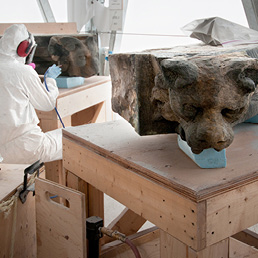
EVOQ COMMITS TO IMPROVING ITS CONTRIBUTION TO SUSTAINABLE DEVELOPMENT BY
- Promoting sustainable architecture
- Developing and maintaining our team’s professional expertise
- Developing, supporting and promoting traditional knowledge and practices
- Offering a stimulating, healthy and balanced work environment
- Managing the activities of the firm so that they have a positive impact on the environment
- Developing and maintain meaningful and enduring collaborations with our partners, communities, consultants and colleagues
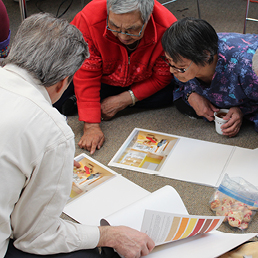
EVOQ’S SUSTAINABLE DESIGN PHILOSOPHY
Architecture should be an expression of meaning that evokes a culture, a time or a place. Each project is unique and we take the time to understand the inherent values of each site.
Our design solutions are both client and context sensitive, with equal regard to budgets, schedules, long-term maintenance and environmental sustainability.
Committed to quality and craftsmanship, EVOQ approaches each mandate with ingenuity, creativity and rigour. Our goal is to develop strong partnerships with our clients and to deliver expert design solutions.
EVOQ’S SUSTAINABLE DEVELOPMENT APPROACH
The principles and requirements of sustainable development fit naturally into EVOQ’s intervention philosophy through its specialized areas of expertise. EVOQ’s know-how enables it to produce sustainable architecture through the conservation and creation of buildings that respect history, culture and the environment.
By restoring and renovating existing heritage buildings, the EVOQ team allows for the guardianship of heritage architecture. The rehabilitation and reuse of existing buildings has significant, and often underestimated, social, environmental and economic impacts on the creation of sustainable communities.
The EVOQ team works closely with communities north of the 55th parallel to conceive architectural environments adapted to the rigours of the arctic. As the construction, operation and maintenance of buildings in this extreme climate come at a considerable financial cost, the EVOQ team develops high-performance buildings, notably thanks to dense, optimized massing as well as highly energy-efficient envelopes and electro-mechanical systems. The top-level team of LEED® accredited professionals develops techniques and work-methods adapted to each project and recognizes the uniqueness of each build. Community inclusion, always at the heart of EVOQ’s design process, helps formulate the detailed specifications which demand both high-performance and measurable sustainable results.
A recognized leader in its areas of expertise, EVOQ has several award-winning and certified eco-responsible projects such as the Kuujjuaq Terminal (2008) in Nunavik (New Construction, the first LEED® Silver certified building north of the 55th parallel) and the Elgin County Courthouse (2014) in Ontario (Restoration and Rehabilitation of a Heritage Building, LEED® Gold Building).
These projects contribute EVOQ’s commitment to a sustainable architectural practice.
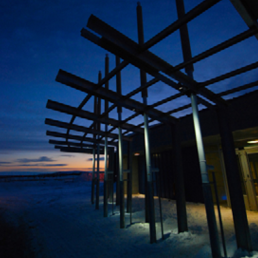
Kuujjuaq Airport Terminal
Certified LEED® Silver, it is the first LEED® certified building north of the 55th parallel in Canada, meeting the challenge of adapting LEED® sustainability measures within an arctic environment.
“Indeed the Kuujjuaq Aiport Terminal constitutes a fine example of intelligent architecture that succeeds in balancing respect for the environment with being attentive to the expectations of its users”. — Alain Hochereau (translation), “Architect of the Great North”, Voir (Montreal, April 19, 2004)
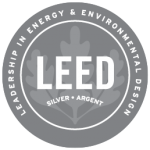
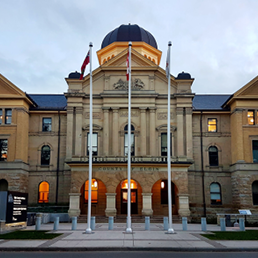
Elgin County Courthouse
A prominent historical landmark in St. Thomas, the Elgin County Courthouse was expanded in order to consolidate the Ontario Court of Justice and the Superior Court of Justice into one modern facility. The expanded courthouse, opened in March 2014, was Certified LEED® Gold, by the Canada Green Building Council. As the Heritage Conservation Architects to NORR, EVOQ’s mandate was to restore and rehabilitate the historic St. Thomas courthouse (c.1852) and the adjacent land registry office (c.1874).
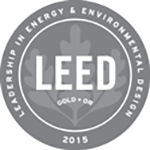
* ECOCERT is an independent agency recognized worldwide in the certification of environmental standards. It administers the CID ECORESPONSIBLE™ Certification process for companies across the globe from its 29 offices in 26 countries in the Americas, Asia and Europe.

